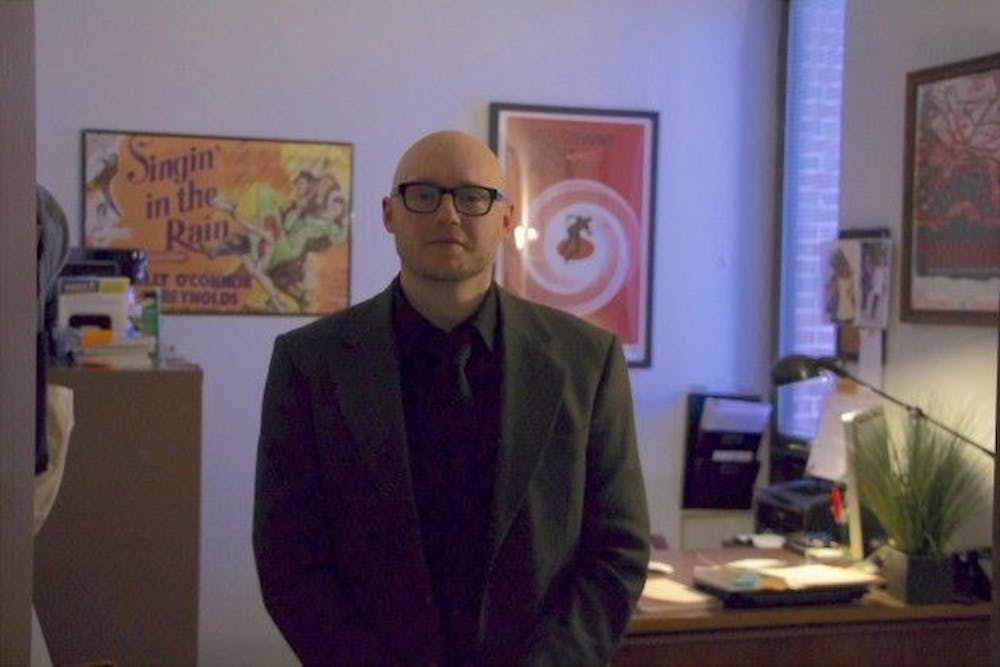Nicholas Simpson has taught a plethora of film courses at the University of Memphis, including Intro to Film, Contemporary Cinema and Television/Culture, for almost seven years.
He has also worked on a few well-known films, including "Babyland," a documentary about infant mortality in Memphis. However most people on campus simply refer to him as "the British guy."
Q: Where did you develop that spectacular accent?
NS: Well, I actually grew up 'til I was eight in South Wales, which was weird because I never really fit in. I was the only English guy in my village school. The Welsh and the English have something of a fractious relationship historically.
Then, when I was eight, we moved to London, which is where I grew up. I went to a strict, all-boys grammar school, which I loved, but it didn't have many arts opportunities, so my love of film kind of developed on the side as a hobby.
Q: How did you end up in Memphis?
NS: I decided that I was interested in doing some teaching, because I'd done a very informal level, sort of tutoring, teaching film on a much smaller scale. So I went back and did a master's of education at London Metropolitan University.
While I was still doing that, I got offered a job at a high school to teach film media and drama, so I did that for a few years. In the midst of doing all that, I met my wife who was living in England but is from Memphis. Once she and I got married, we had a decision to make about where we were going to live, and we decided to move back here.
Q: What got you involved in film?
NS: When I was about fifteen, I got a hold of my first VHS video camera, which was probably about half the size of this desk. You could only carry it on your shoulder because it was so bloody heavy. But I loved it! I decided very quickly that I wanted to do a film degree.
Q: What do you like most about teaching at the U of M?
NS: I have a very, very firm belief as an educator that the world is a better place the more we educate people.
Q: You mention philosophy in your classes frequently. Do you have a philosophy degree along with your Bachelor's and Master's degrees?
NS: I don't have a degree in philosophy, but I would call myself a sort of amateur enthusiast.
When I was in high school, I wanted to take a philosophy class and I also wanted to take a physics class, but my schedule didn't allow me to do either. I've always had this lingering fascination with both subjects, so I read books on philosophy.
You can't teach communications classes or get a communications degree without a basic understanding of early philosophers in terms of their communication. I'm talking about their philosophies in a very specific realm. It's usually how it intersects with ideology, language, meaning, that kind of thing.
Q: What is your most memorable moment in film?
NS: The most memorable moment for me was working on the "Babyland" documentary. The movie opens with a scene at a funeral. I didn't really know Memphis. I just about gleaned through that production that there are two Memphises, right? There's the white, middle-class Memphis, and there's the poor black Memphis.
Making that movie in the poor, black part of Memphis with very underprivileged families, with this infant mortality that is the subject of the documentary. You can talk about that, people can tell you about that. Until you see it, you can't understand the disparity that we have in the city.




